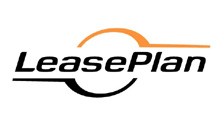“In the light of current economic uncertainty, this Budget has to balance the urgent need to reduce the deficit with adequate measures to sustain growth. We’ve heard a great deal about how this coalition government has consulted with business on its approaches to delivering this – now we expect to see the fruits of those talks in measures that achieve a fair and sustainable balance between these requirements.
“Our concern is that by speeding up the process of deficit cutting the Government could compromise the productivity of the economy. Tax raids and over-ambitious cuts could damage not only our ability to recover, but undermine the foundations of future growth.
“With regards to company vehicles the government should remember that they are not simply a luxury for business they are a necessity. As such, this budget must not increase this aspect of cost of doing business by increasing the tax burden on either companies or individuals. Any taxation changes should acknowledge the role of the company car, as opposed to a cash alternative, in ensuring greener and safer vehicles occupy our roads; also the role of leasing as a vital tool to free up capital and protect against residual value risk.
“Additionally, VAT has been widely predicted to increase. The broader implications of this move for our industry need to be understood and ideally counter-balanced by other measures within the budget. Not only will a VAT increase effect the cost of new vehicles, with a consequential effect on residual values, it will also hit a range of other travel related costs for business – from already sky-high fuels costs, to road tolls and parking.
“The coalition government is united in the fight for green technology and enforcing low carbon thresholds, which we applaud. To make this successful though, there must also be further tax breaks and incentive schemes to get more businesses and drivers into greener vehicles.
“There is already a persuasive argument for the financial benefits of going green, but now it has to be taken further. Whilst green technology is vital, developing the right infrastructure that can support and manage vehicles has to be implemented first. Without a clear direction, and commitment from government on how and when this will happen, the industry- and drivers in general- will be reticent about making the decisions needed to deliver this green future.
“This budget must also acknowledge that our roads are a vital artery for business. While improvements to public transport infrastructure are welcome, the significance of road travel & transportation for business should not be hampered by under-investment or increased secondary taxes - excessive road tolls, car parking tax levies, congestion zone fees.
“The Public Sector is likely to face significant cut backs on June 22nd, but this cannot be to detriment of front line services that rely on road transport to deliver to their customers. Outsourcing and leasing are cost effective measures in the public sector and the government should recognise the important role these solutions play in the keeping the public sector mobile. The issue for public sector organisations is that they are not corporation tax rated and therefore not able to offset rentals against their tax bill. Any punitive changes to VAT or the capital allowance element of company car tax which result in increased rental costs will therefore not be able to be offset by public sector organisations. The net result will be increased rentals and less attractive leasing arrangements.
“With such a focus on deficit reduction and economic recovery, there is the worry that the government will constrict economic productivity in the quest to reduce debt. Whilst we accept that tax increases are inevitable from this government, it is crucial that they are levied with intelligence and understanding of their wider consequences. Too stringent cuts now could create an investment deficit that could haunt UK business for years to come.”
For all the latest advice and information on fleet management, have a read of our fleet operations section.


















Login to comment
Comments
No comments have been made yet.